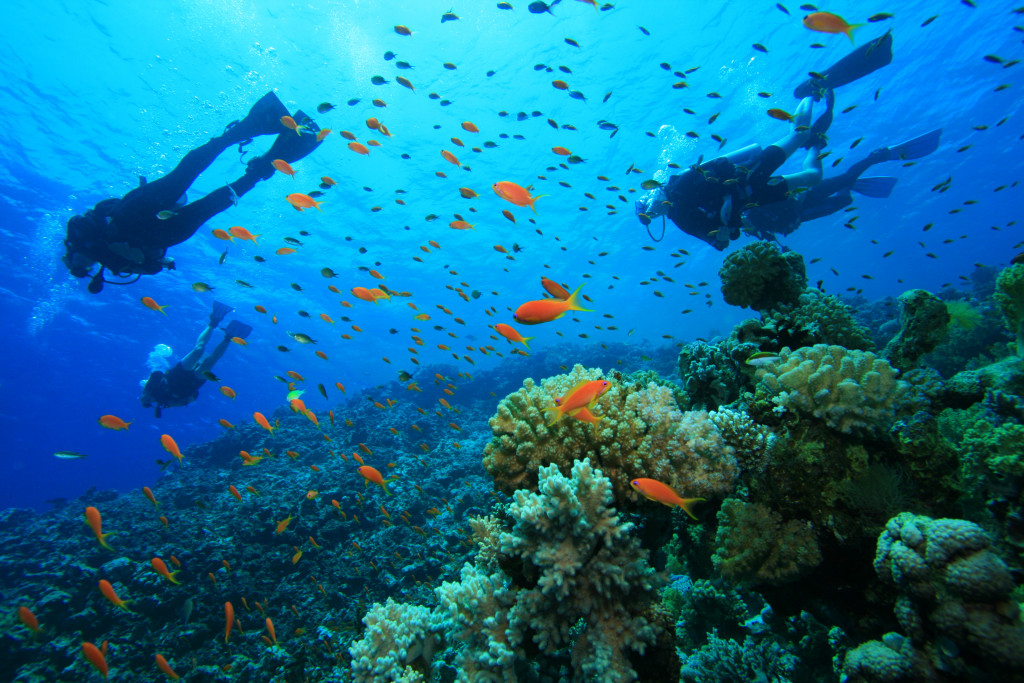The busy, fast-paced lifestyles that many of us lead are often met with a lack of opportunities to take a break. But these periods of rest are actually necessary to let us maintain good mental health and relationships. We should learn to balance the demands of our work and personal lives with enough time to recuperate.
Exercise and other forms of physical activity are great ways to accomplish this. Still, doesn’t being holed up at work, whether at home or in the office, make you want a change of scenery? What if we told you that there is a way to hit two birds with one stone?
Freediving is a great way to give yourself a unique experience with nature while getting the exercise you need.
What Is Freediving?
First, let’s find out what differentiates freediving from other kinds of diving.
Freediving is referred to that way because it lets a diver roam the waters without the aid of some bulky breathing apparatus. The freediver merely holds their breath until they return to the surface.
One thing to note is that snorkeling is different from freediving. While both use similar tools, snorkelers stay on the surface and view what’s underneath through their masks. Freedivers, on the other hand, hold their breaths and dive underwater.
Do I Need Any Equipment for It?
Compared to scuba diving, freediving requires minimal equipment. While the gear is usually available for rent at diving centers, you may want to consider investing in these devices if you plan to make a hobby of it.
- Mask: Freediving masks have a lower volume than scuba masks, which means a diver has to inhale less air to equalize and prevent the mask from squeezing. Opt for clear lenses to help your diving companions see your eyes better underwater.
- Snorkel: The main use for snorkels is to help with breathing while a diver checks on underwater conditions from the surface. A straightforward snorkel with a flexible tube should do the trick, no need for extra features.
- Diving Watch: A diving watch is a handy tool if you plan to dive more in the future. Don’t worry about not knowing how to use a diving watch because it is simple to read. It has great visibility underwater and lets you better keep track of how long you’ve been out.
- Fins: Rubber or silicone fins are good fins when you’re still learning proper form. When you’re ready to kick it up a notch, get carbon fiber or fiberglass ones.
- Wetsuit: This isn’t required in tropical waters, but it keeps you safe from the sun and creatures that could sting you. In non-tropical waters, though, a wetsuit is important to maintain body temperature.

Is a Certification Required?
While getting started doesn’t necessarily require any formal certification or training, taking a course and learning from experienced instructors gives you peace of mind. It gives you a fuller idea of what freediving will be like and what to anticipate for your first experience. When you know what to expect, you can stay calm in the water.
Training also makes you aware of the risks of poor technique. Bad freediving practices can lead to ear injuries, sinus barotraumas, and even drowning.
Another reason that you need training is to know how to respond when your diving buddy needs help. You will learn to watch your partner and come to their aid efficiently should you encounter problems underwater.
Training may not be an explicit requirement, but it does make for an overall safer experience.
How Do I Make Sure I Freedive Safely?
Other than getting training, these are a couple of things to remember when freediving.
Adequately prepare beforehand.
That is, prepare your mind and body in time for your diving trip. Do breathing exercises and stretch your muscles to loosen up.
You can also make a checklist. It may feel like much, but it is always better to be sure than sorry. A list of all the gear you’re bringing reassures you and lets you ensure you have everything you need.
Always dive with a buddy.
A crucial thing to remember is to never freedive on your own. Yes, freediving is safe when you follow proper techniques and protocols. But without a buddy, you have no one to come to your aid if you experience a blackout due to lack of oxygen or get cramps during the dive.
Conclusion
The fun and adventure are great benefits, but safety is still your foremost priority when freediving. You can have an enjoyable time when you are assured of your safety.





